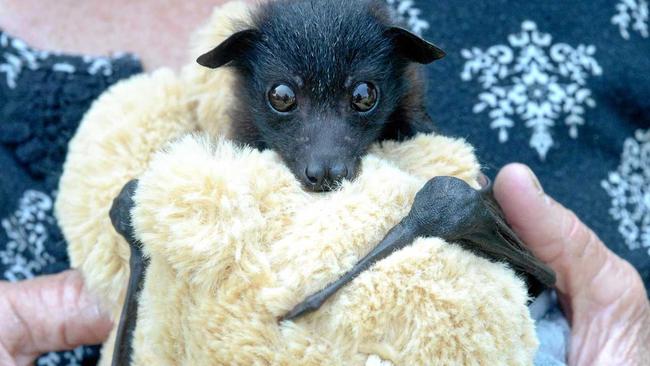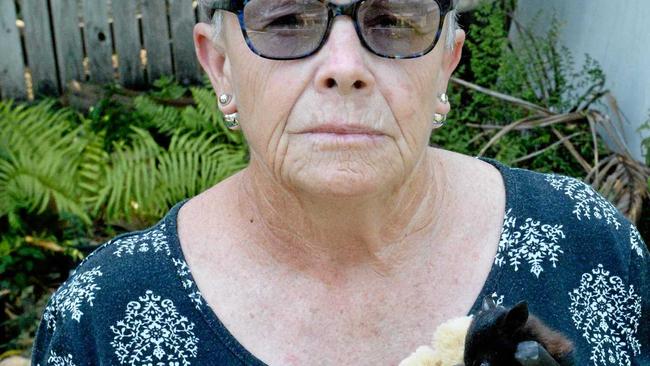Wildlife carers predict doomsday scenario for vital species
Fears that half the local colony was lost during extreme CQ heatwave

Rockhampton
Don't miss out on the headlines from Rockhampton. Followed categories will be added to My News.
LOCAL wildlife carers are scrambling to protect flying fox babies against what experts fear may be inevitable extinction in as few as 20 years.
Lyn Laskus, who has been conducting bat censuses for a decade, fears the local black and red bat colony numbers were halved during last week's heatwave and bush fires.
She found "thousands dead in trees and on the ground" at Keppel Sands, Kabra and Westwood Thursday November 29 and rescued one still alive and attached to its mother on the ground at Westwood.
"They are a key stone species and pollinators of our hardwood forest and this will have a domino effect on other already vulnerable wildlife," she said.
Ms Laskus claims local councils should step up to protect the species and relieve wildlife carers who pay thousands of dollars out of their own pocket for training and equipment.
She also alleges local councils are sidestepping their responsibility to remove bat carcasses.
Michelle Kraatz spent $14,000 on a code-compliant shed behind the house she shares with her mother in North Rockhampton, and renews her training every three years.
She receives no rebates for medications, creams, food, vet bills and surgery.
"Each of these creatures is highly intelligent, emotional and inquisitive," Ms Kraatz said.
"They giggle, they play peek-a-boo, they love a bit of hairdressing."
Ms Kraatz says they've even learned to copy her using her phone, sending out random text messages when her back is turned.
"People who think that bats are dirty and dangerous need to understand how vital they are to our environment," she said.
"Because so many of our native plants open their stamens in the night time, bats are the number one pollinator, even more helpful than bees."
She says they are "hop, skip and jump" explorers whose fur is designed to protect and scatter as many as 66 thousand seeds in a single night's travel.
"Michelle is the most knowledgeable people in this area regarding flying foxes but she and her Mum are exhausted both physically and financially," Ms Laskus said following a week of constant call-outs.
"It took us just two hours at Keppel Sands to rehydrate two babies and both were terribly traumatised."

Ms Laskus applauds this week's "mercy dash" between Brisbane and Townsville which saw carers from around the state undertake a 1400km round trip to conduct triage on 85 babies rescued since last week.
"Ten people on the Capricorn Coast worked their butts off for two hours to bottle and clean them ready for handover," she said of the first-time cooperative venture.
Ms Laskus is thankful to locals for their time and donations of food - a 5kg bag of Wombaroo high protein supplement for the bats can only be purchased at Australian Wildlife Supplies for $80 - and equipment such as 23-gauge needles for 'sub cutting'.
Yeppoon's Capricorn Coast Land Care office between the Livingstone Shire library and Vinnies, has offered to accept donations for the carers.
Originally published as Wildlife carers predict doomsday scenario for vital species


